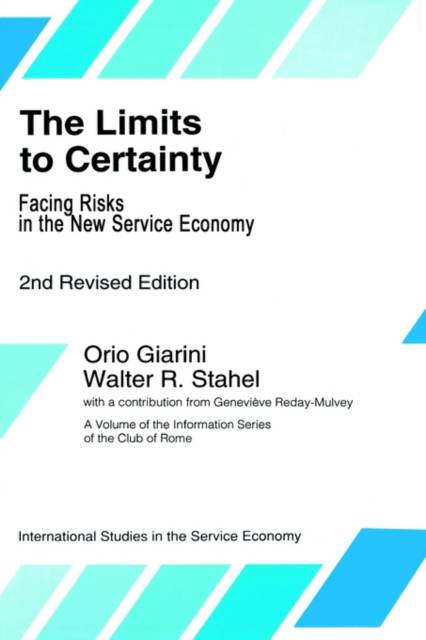
- Afhalen na 1 uur in een winkel met voorraad
- Gratis thuislevering in België vanaf € 30
- Ruim aanbod met 7 miljoen producten
- Afhalen na 1 uur in een winkel met voorraad
- Gratis thuislevering in België vanaf € 30
- Ruim aanbod met 7 miljoen producten
Zoeken
Omschrijving
I consider it a privilege to have been invited to write a preface for "The Limits to Certainty". It is however paradoxical that a theo- retical physicist be asked to write about a monograph dealing mainly with service economics. Notwithstanding, I am delighted to do so. Indeed, it is striking that two so widely different fields like physics and social science, and more especially economics, can interact in such a constructive way. There is no question here of reductionism. Nobody claims to be able to reduce social scien- ces to physics, nor to use patterns of social interaction in order to formulate new laws for atoms. What is at stake here is more im- portant than reduction; the age-old separation between the so-cal- led "hard" and "soft sciences" is breaking down. This separation has a long history. First, one should recall the influence of Newton's achievement on the formulation of scienti- fic goals. This influence led to the formulation of equilibrium mo- dels for supply/demand adjustment. As was noticed by Walter Weisskopf: "the Newtonian paradigm underlying classical and non-classical economics interpreted the economy according to the patterns developed in classical physics and mechanics, in analogy to the planetary system, to a machine or clockwork: a closed auto- nomous system ruled by endogenous factors of a highly selective nature, self-regulating and moving to a determinate, predictable point of equilibrium" (The Geneva Papers on Risk and Insurance (1984), Vol. 9, no. 33, pp. 335-360).
Specificaties
Betrokkenen
- Auteur(s):
- Uitgeverij:
Inhoud
- Aantal bladzijden:
- 271
- Taal:
- Engels
- Reeks:
- Reeksnummer:
- nr. 4
Eigenschappen
- Productcode (EAN):
- 9780792321675
- Verschijningsdatum:
- 30/04/1993
- Uitvoering:
- Hardcover
- Formaat:
- Genaaid
- Afmetingen:
- 165 mm x 242 mm
- Gewicht:
- 630 g

Alleen bij Standaard Boekhandel
+ 335 punten op je klantenkaart van Standaard Boekhandel
Beoordelingen
We publiceren alleen reviews die voldoen aan de voorwaarden voor reviews. Bekijk onze voorwaarden voor reviews.











